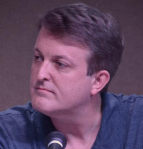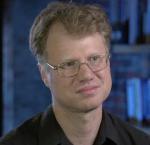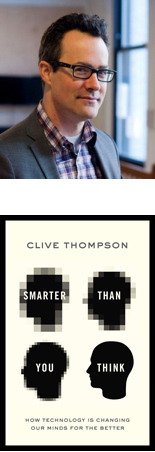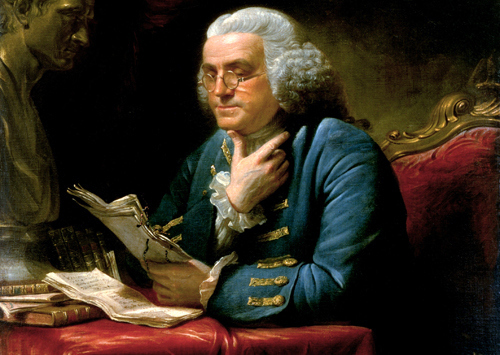David McRaney's Blog, page 33
March 3, 2014
YANSS Podcast 019 – Placebo sleep and other new discoveries in placebo research
The Topic: The Placebo Effect
The Guest: Kristi Erdal
The Episode: Download – iTunes – Stitcher – RSS – Soundcloud

Photo Illustration by the artist known as Candy (it’s aspirin)
How powerful is the placebo effect? After a good night’s sleep could a scientist convince you that you had tossed and turned, and if so, how would that affect your perceptions and behavior? What if a doctor told you that you had slept like a baby when in reality you had barely slept at all? Would hearing those words improve your performance on a difficult test?
In this episode we learn the answers to these questions and more as we explore how research continues to unravel the mysteries behind the placebo effect and how it can drastically alter our bodies and minds.
 Our guest is Kristi Erdal, a psychologist at Colorado College who discovered placebo sleep along with one of her students, Christina Draganich. Draganich wondered if such a thing might exist after reading all the literature on placebos, and Erdal helped her create the research methods she used to test her hypothesis. Erdal’s page at Colorado College can be found here.
Our guest is Kristi Erdal, a psychologist at Colorado College who discovered placebo sleep along with one of her students, Christina Draganich. Draganich wondered if such a thing might exist after reading all the literature on placebos, and Erdal helped her create the research methods she used to test her hypothesis. Erdal’s page at Colorado College can be found here.
After the interview, I discuss a news story about how important eccentricity is when it comes to evaluating an artist’s work.
In every episode, before I read a bit of self delusion news, I taste a cookie baked from a recipe sent in by a listener/reader. That listener/reader wins a signed copy of my new book, “You Are Now Less Dumb,” and I post the recipe on the YANSS Pinterest page. This episode’s winner is Natalie Sun who submitted a recipe for White Chocolate Oreo Cookies. Send your own recipes to david {at} youarenotsosmart.com.
Links and Sources
The Episode: Download – iTunes – Stitcher – RSS – Soundcloud
Steve Silberman’s Article About The Placebo Effect
Kristi Erdal’s Page at Colorado College
The Placebo Sleep Press Release
Eccentricity of Artists Article
Beecher’s Paper: The Powerful Placebo
Ben Goldacher Talks About the Placebo Effect
Daniel Keogh’s Video About the Placebo Effect

February 19, 2014
YANSS Podcast 018 – How Benjamin Franklin dealt with haters
The Topic: The Benjamin Franklin Effect
The Episode: Download – iTunes – Stitcher – RSS – Soundcloud
Benjamin Franklin knew how to deal with haters, and in this episode we learn how he turned his haters into fans with what is now called The Benjamin Franklin Effect (read more about the effect here).
Listen as David McRaney reads an excerpt from his book, “You Are Now Less Dumb,” explaining the psychology behind the effect and how the act of spreading harm forms the attitude of hate, and the act of spreading kindness generates the attitude of camaraderie.
Links:
Time Magazine: 1 in 4 Americans Apparently Unaware the Earth Orbits the Sun
Sources:
Batson, C. Daniel, Diane Kobrynowicz, Jessica L. Dinnerstein, Hannah C. Kampf, et al. “In a Very Different Voice: Unmasking Moral Hypocrisy.” Journal of Personality and Social Psychology 72, no. 6 (1997): 1335–348.
Cacioppo, John T., Joseph R. Priester, and Gary G. Berntson. “Rudimentary Determinants of Attitudes: II. Arm Flexion and Extension Have Differential Effects on Attitudes.” Journal of Personality and Social Psychology 65, no. 1 (1993): 5–17.
Festinger, Leon, and James M. Carlsmith.“Cognitive Consequences of Forced Compliance.” Journal of Abnormal and Social Psychology 58, no. 2 (1959): 203–10.
Franklin, Benjamin. The Autobiography of Benjamin Franklin. Ed. Frank Woodworth Pine. Garden City, NY: Garden City Pub., 1916.
Jecker, Jon, and David Landy. “Liking a Person as a Function of Doing Him a Favour.” Human Relations 22, no. 4 (1969): 371–78.
Myers, D. G. Social Psychology. New York: McGraw-Hill, 2005. Schopler, John, and John S. Compere. “Effects of Being Kind or Harsh to Another on Liking.” Journal of Personality and Social Psychology 20, no. 2 (1971): 155–59.
Tavris, Carol, and Elliot Aronson. Mistakes Were Made (But Not by Me): Why We Justify Foolish Beliefs, Bad Decisions, and Hurtful Acts. Orlando, FL: Harcourt, 2007.
Wicker, Allan W. “Attitudes Versus Actions: The Relationship of Verbal and Overt Behavioral Responses to Attitude Objects.” Journal of Social Issues 25, no. 4 (1969): 41–78.

February 13, 2014
YANSS Store Fully Restocked
 Many of you have been asking when the confirmation bias t-shirts would be available again, and I’m happy to inform you that day is…today!
Many of you have been asking when the confirmation bias t-shirts would be available again, and I’m happy to inform you that day is…today!
The YANSS merch table is now fully stocked with all items. You can check it out here: YANSS Merch Table
Also, in case you didn’t know, I can sign your Kindle (or other e-book) versions of both of my books. Just head to my page at Authorgraph here: My Page at Authorgraph
And…if you would like a free, signed bookplate for your physical copy, and you live in the USA, you can get one by sending a self-addressed, stamped envelope to…
Signed Bookplate
P.O. Box 15792
Hattiesburg, MS 39404
…and I’ll send you back one of these with my scribbles on it:
Thanks for all the support. The store was sold out because of you, and that’s fantastic. Thank you!

February 3, 2014
YANSS Podcast 017 – Tim Farley explains the potential harm in using alternative medicine
The Topic: Alternative Medicine
The Guest: Tim Farley
The Episode: Download – iTunes – Stitcher – RSS – Soundcloud
[image error]
Dr. Terminus, the snake oil salesman from Disney’s “Pete’s Dragon”
Where is the line between regular medicine and alternative medicine? Are Eastern medicine and Western medicine truly at odds, and if so, who is right and who is wrong? What harm is there in using complementary or integrative treatments in an effort to improve wellness?
 In this episode we discuss alternative medicine with Tim Farley, creator and curator of What’s The Harm, a website that tracks the harmful effects that result from seeking out alternative treatments and cures before, or instead of, seeking out science-based medicine. Tim is a software engineer and research fellow at the James Randi Foundation. He also created the website Skeptical Software Tools, and he tweets at @krelnik.
In this episode we discuss alternative medicine with Tim Farley, creator and curator of What’s The Harm, a website that tracks the harmful effects that result from seeking out alternative treatments and cures before, or instead of, seeking out science-based medicine. Tim is a software engineer and research fellow at the James Randi Foundation. He also created the website Skeptical Software Tools, and he tweets at @krelnik.
After the interview, I discuss a news story about morality within virtual reality.
In every episode, before I read a bit of self delusion news, I taste a cookie baked from a recipe sent in by a listener/reader. That listener/reader wins a signed copy of my new book, “You Are Now Less Dumb,” and I post the recipe on the YANSS Pinterest page. This episode’s winner is Robin Sanchez who submitted a recipe for raspberry sandwiches. Send your own recipes to david {at} youarenotsosmart.com.
Links and Sources
The Truth About Alternative Medicine (panel from TAM 2012)
The National Science Foundation on Alternative Medicine
The National Center for Complementary and Alternative Medicine

January 16, 2014
YANSS Podcast 016 – Steven Novella and Jesse Walker discuss the history and psychology of conspiracy theories
The Topic: Conspiracy Theories
The Guest: Steven Novella and Jesse Walker
The Episode: Download – iTunes – Stitcher – RSS – Soundcloud
Who is pulling the strings? Who is behind the coverup? Who holds the real power, and what do they want? How deep does the conspiracy to control your mind go?
In this episode we discuss the history, social impact, neuroscience and psychology behind conspiracy theories and paranoid thinking.

Our guests are Steven Novella and Jesse Walker.
Steven Novella is a leader in the skeptic community, host of The Skeptic’s Guide to the Universe, and an academic clinical neurologist at Yale University School of Medicine. He blogs at Neurologica, Skepticblog, and Science-Based Medicine.

Jesse Walker is the book editor for Reason Magazine and author of the new book, The United States of Paranoia, a Conspiracy Theory. Walker’s articles can be seen in The New York Times, The Wall Street Journal, The Washington Post, and many others. He blogs at The Perpetual Three Dot Column.
Listen as they explain why we love conspiracy theories, how they flourish, how they harm, and what they say about a culture.
After the interview, I discuss a news story about new evidence to support Dunbar’s Number.
In every episode, before I read a bit of self delusion news, I taste a cookie baked from a recipe sent in by a listener/reader. That listener/reader wins a signed copy of my new book, “You Are Now Less Dumb,” and I post the recipe on the YANSS Pinterest page. This episode’s winner is Hal Sandbach who submitted a recipe for turtle cookies. Send your own recipes to david {at} youarenotsosmart.com.
Links and Sources
The Episode: Download – iTunes – Stitcher – RSS – Soundcloud
The Skeptic’s Guide to the Universe
The United States of Paranoia, a Conspiracy Theory
Wikipedia’s Giant List of Conspiracies
Oxford Study Concerning Dunbar’s Number

January 7, 2014
YANSS Podcast 015 – I read an excerpt from You Are Now Less Dumb
The Topic: Narrative Bias
The Episode: Download – iTunes – Stitcher – RSS – Soundcloud

The Ypsilanti State Hospital – Photo Courtesy of Opacity.Us
In this inbetweenisode I read an excerpt from my book, You Are Now Less Dumb, about a strange experiment in Michigan that tested the bounds of the self by throwing three very unusual men into a situation that won’t likely be repeated ever again by science.
In the next episode (posting next week) of the You Are Not So Smart Podcast, neurologist Steven Novella and author Jesse Walker explain why we love conspiracy theories, how they flourish, and what they say about a culture.
Links and Sources
McRaney, David. You Are Now Less Dumb: How to Conquer Mob Mentality, How to Buy Happiness, and Allthe Other Ways to Outsmart Yourself. Penguin Group US. Kindle Edition.
Rokeach, Milton. The Three Christs of Ypsilanti. New York: New York Review Books, 2011.
Eagleman, D. Incognito: The Secret Lives of the Brain. New York: Pantheon, 2011.
Whinnery, James E., and Angela M. Whinnery. “Acceleration-Induced Loss of Consciousness: A Review of 500 Episodes.” Archives of Neurology 47, no. 7 (1990): 764– 76.

December 23, 2013
YANSS Podcast 014 – Melanie C. Green and how stories can change beliefs and behaviors
The Topic: Narratives
The Guest: Melanie C. Green
The Episode: Download – iTunes – Stitcher – RSS – Soundcloud

Falcor the Luck Dragon from the Universal Pictures film, The Neverending Story
In this episode we discuss the power narratives have to affect our beliefs and behaviors with Melanie C. Green, a psychologist who studies the persuasive power of fiction.
According Nielsen, the TV ratings company, the average person in the United States watches about 34 hours of television a week. That’s 73 days a year. Over the course of a lifetime, the average American can expect to spend a full decade lost in the trance spell that only powerful narratives can cast over the human mind.
What is the power of all the stories we consume through television? What about movies and books and comics and video games and everything else? How does it affect our beliefs and behaviors?
 We discuss all of that and more with Melanie C. Green who is a social psychologist who developed the transportation into a narrative worlds theory that helps explain total story immersion and how it translates into influence over our real-world behaviors. Green is an assistant professor of psychology at the University of North Carolina, Chapel Hill. You can find her on Twitter using the handle @NarrProf or her website.
We discuss all of that and more with Melanie C. Green who is a social psychologist who developed the transportation into a narrative worlds theory that helps explain total story immersion and how it translates into influence over our real-world behaviors. Green is an assistant professor of psychology at the University of North Carolina, Chapel Hill. You can find her on Twitter using the handle @NarrProf or her website.
After the interview, I discuss a news story about research into how photographs can either enhance or dampen your memory depending on how you use them.
In every episode, before I read a bit of self delusion news, I taste a cookie baked from a recipe sent in by a listener/reader. That listener/reader wins a signed copy of my new book, “You Are Now Less Dumb,” and I post the recipe on the YANSS Pinterest page. This episode’s winner is Elliot Jones who submitted a recipe for chocolate orange cherry cookies. Send your own recipes to david {at} youarenotsosmart.com.
Links/Sources:
This Episode: Download – iTunes – Stitcher – RSS – Soundcloud
Article About Photos and Memory
Lost Explained in Three Minutes

December 9, 2013
New York City’s Placebo Buttons and The Post Hoc Fallacy
I’m so excited to reveal the latest book trailer for my new book, You Are Now Less Dumb. Here is a link to learn more about the book.
Once again, the fantastic production crew at Plus3 Video created this wonderful video. You can learn more about them at this link.
You can see all the videos we’ve made together right here on the YANSS Youtube Channel: link to videos.
The video is inspired by a chapter in the book which mentions placebo buttons, a topic covered here on YANSS a few years back which you can read about at this link.

December 4, 2013
YANSS Podcast 013 – Clive Thompson and How Technology Affects Our Minds
The Topic: Technology
The Guest: Clive Thompson
The Episode: Download – iTunes – Stitcher – RSS – Soundcloud
The very fact that you are reading this sentence, contemplating whether you want to listen to this podcast, means that you are living out a fantasy from a previous generation’s cyberpunk novel.
However you made it here, however you got these words into your brain, you did so by diving through data streams first cooked up by delirious engineers downing late-night coffees, wandering deep within rows of data tape unspooling from jerky, spinning platters.
We’ve been dreaming of this life for a long time, since before the vacuum tubes and punchcards of the ’40s, and now that we are here, some people are worried that the tech will, at best, make us lazy, and at worst make us stupid.
Is all this new technology improving our thinking or dampening it? Are all these new communication tools turning us into navel-gazing human/brand hybrids, or are we developing a new set of senses that allow us to benefit from never severing contact with the people most important to us?
 That’s the topic of this episode of the You Are Not So Smart Podcast, and to answer these questions we welcome this episode’s guest, Clive Thompson, who is the author of Smarter Than You Think: How Technology is Changing Our Minds for the Better. As the title suggests, he disagrees with the naysayers, and his book is an impressive investigation into why they are probably (thankfully) wrong. Thompson is a journalist whose work can be found published in Wired, The Washington Post, and the New York Times Magazine. You can learn more about him at his website.
That’s the topic of this episode of the You Are Not So Smart Podcast, and to answer these questions we welcome this episode’s guest, Clive Thompson, who is the author of Smarter Than You Think: How Technology is Changing Our Minds for the Better. As the title suggests, he disagrees with the naysayers, and his book is an impressive investigation into why they are probably (thankfully) wrong. Thompson is a journalist whose work can be found published in Wired, The Washington Post, and the New York Times Magazine. You can learn more about him at his website.
After the interview, I discuss a news story about research into how the way you walk can encourage or discourage criminals to attack you.
In every episode, before I read a bit of self delusion news, I taste a cookie baked from a recipe sent in by a listener/reader. That listener/reader wins a signed copy of my new book, “You Are Now Less Dumb,” and I post the recipe on the YANSS Pinterest page. This episode’s winner is Joye Swan who submitted a recipe for chewy rosemary sugar cookies. Send your own recipes to david {at} youarenotsosmart.com.
Links and Sources:
Download – iTunes – Stitcher – RSS – Soundcloud
How to Stop Worrying and Learn to Love the Internet
The Argument From Antiquity at Neurologica
How the way we walk can increase risk of being mugged

November 21, 2013
YANSS Podcast 12 – David Buss and the Dangerous Passion of Jealousy

Lisa Nowak shampooing in space. Image: NASA
The Topic: Jealousy
The Guest: David Buss
The Episode: Download – iTunes – Stitcher – RSS – Soundcloud
Why do human beings experience jealousy, what is its function, and what are the warning signs that signal this powerful emotion may lead to violence?
Once reserved for the contemplation of poets and playwrights, jealousy is now the subject of intense scientific scrutiny. ”Mate poachers abound,” explains this week’s guest, psychologist David Buss, who says that his research supports his hypothesis that human jealousy is an adaptation forged by evolutionary forces to deal with the problems of infidelity. Moderate jealousy, he says, is healthy and signals commitment, but there is a dark and corrosive side as well that follows a clear, predictable pattern before it destroys lives.
 David Buss is a professor of psychology who studies human mating at The University of Texas at Austin. He his the author of The Evolution Of Desire: Strategies Of Human Mating, Dangerous Passion: Why Jealousy Is As Necessary As Love and Sex, The Murderer Next Door: Why the Mind Is Designed to Kill, and Why Women Have Sex: Understanding Sexual Motivations from Adventure to Revenge. You can learn more about him and his work at DavidBuss.com.
David Buss is a professor of psychology who studies human mating at The University of Texas at Austin. He his the author of The Evolution Of Desire: Strategies Of Human Mating, Dangerous Passion: Why Jealousy Is As Necessary As Love and Sex, The Murderer Next Door: Why the Mind Is Designed to Kill, and Why Women Have Sex: Understanding Sexual Motivations from Adventure to Revenge. You can learn more about him and his work at DavidBuss.com.
After the interview I discuss a news story about research into societies in which women are more competitive than men.
In every episode, before I read a bit of self delusion news, I taste a cookie baked from a recipe sent in by a listener/reader. That listener/reader wins a signed copy of my new book, “You Are Now Less Dumb,” and I post the recipe on the YANSS Pinterest page. This episode’s winner is Fernando Cordeiro who submitted a recipe for chocolate chip cookie ice cream sandwiches. Send your own recipes to david {at} youarenotsosmart.com.
Links/Sources:
Download – iTunes – Stitcher – RSS – Soundcloud
Where Women Are More Competitive Than Men
Colleen Shipman in Court Describing Attack
ABC News: Lisa Nowak Late Night Comedy
The Daily Show Segment about Lisa Nowak

David McRaney's Blog
- David McRaney's profile
- 582 followers













